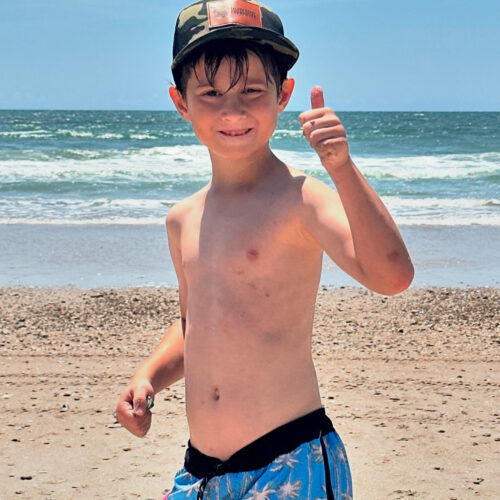When you first meet Shea, you notice something immediately. There is a sparkle in his eye, a light that feels almost otherworldly. His mother, Tori Kinnear, calls him “an angel” and says everyone who meets him knows he is different in the most beautiful way.
Shea is eight years old and will turn nine in November. He is the oldest of four children in a busy military family with three younger siblings and four dogs. His father serves in the Marine Corps, often deployed overseas, while Tori manages their bustling household.

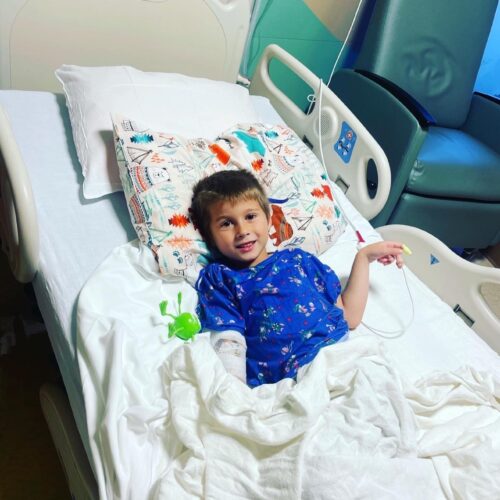
“Shea has been different since he was in my womb,” Tori recalls. “He was my first child, and when I was in pregnancy classes, other moms would be so excited about feeling their babies kick. I remember never feeling kicks. I was questioning, ‘Is it a medication I’m on? Is this normal?’ I definitely had that mother’s intuition that something was different.”
From the beginning, Shea faced challenges. As a baby, he experienced uncontrollable head tremors. He missed developmental milestones, was slow to talk and walk, and struggled with balance. At first, doctors told Tori that children develop at their own pace. But as she welcomed her second child, she began to notice stark differences. “It was clear as day with the developmental milestones,” she says. “It was a slow diagnosis. A lot had to happen before someone thought to test his mitochondrial DNA.”
That moment came after several frightening ER visits when Shea’s cerebellum began to swell during illness. Eventually, doctors ordered genetic testing. Tori still remembers the day she got the call.
“I was just about to walk into school with [Shea], and his neurologist’s assistant called,” Tori, who worked at Shea’s school at the time, recalled. “She started reading me results that she didn’t understand herself. She told me things like ‘92 percent mutated cells with this ATP6 8993 mutation’ and had no idea what it meant. His neurologist was on vacation. So I walked Shea to class, sat in my classroom, and started Googling. Everything I saw online said death within two years of diagnosis.”
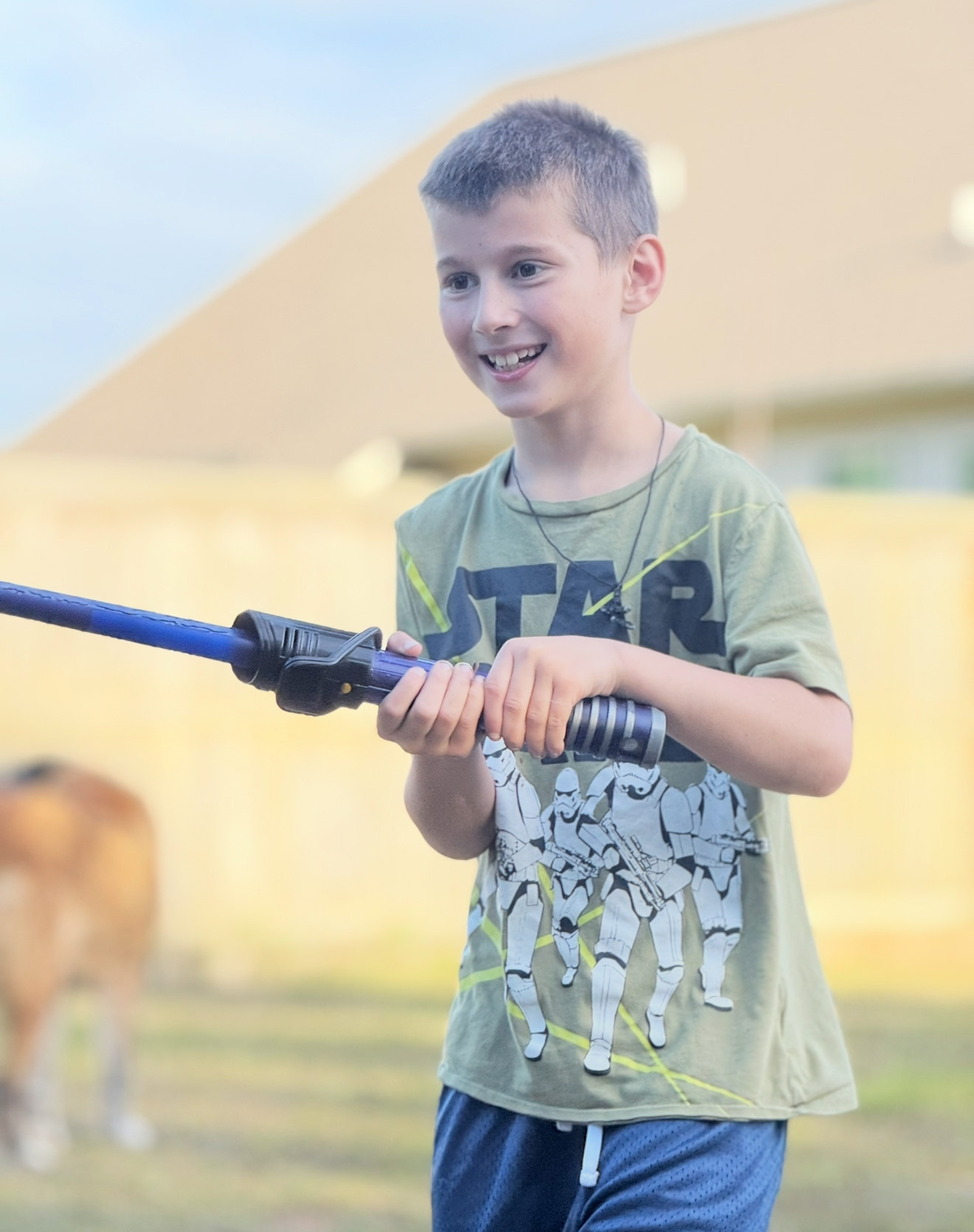
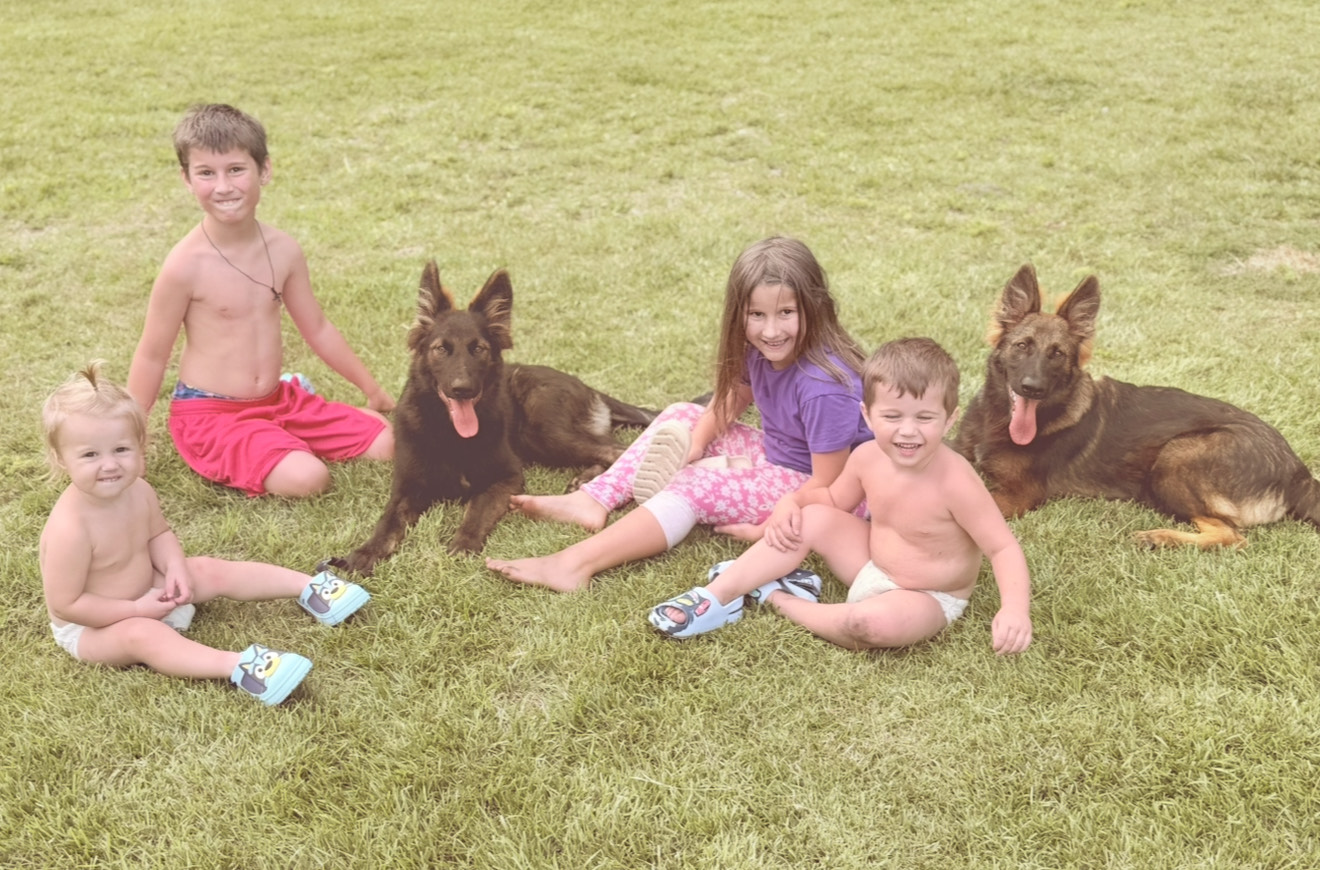
Her husband was away training in South Carolina, and she had just given birth to their third child. “Our world was turned upside down,” she says. “I would cry every night and try to hold it together. At the same time, I had just found out I was pregnant with my fourth, my husband was about to deploy to Iraq, and he had just been in a bad training accident. It felt like my world was crashing down.”
Shea was officially diagnosed with Leigh Syndrome, a rare mitochondrial disorder, at age five. Looking back, Tori believes the timing was a strange blessing. “If we had known earlier, we probably would not have had more children, and his siblings are his greatest blessings,” she says.
Despite his diagnosis, Shea continues to defy expectations. “He should not be where he is now,” Tori says. “He can quote the Star Wars movies, play video games, ride a scooter (even though his balance is off.) He’s always proving me wrong.”
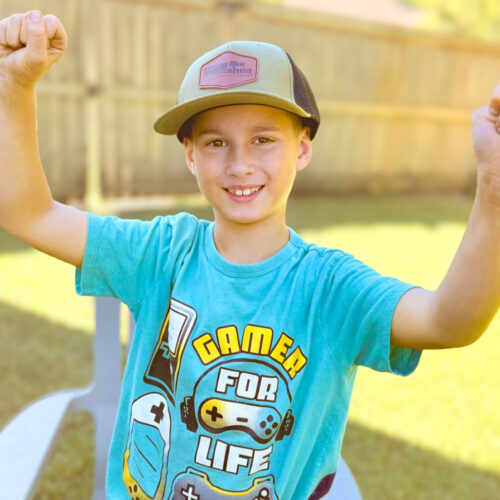
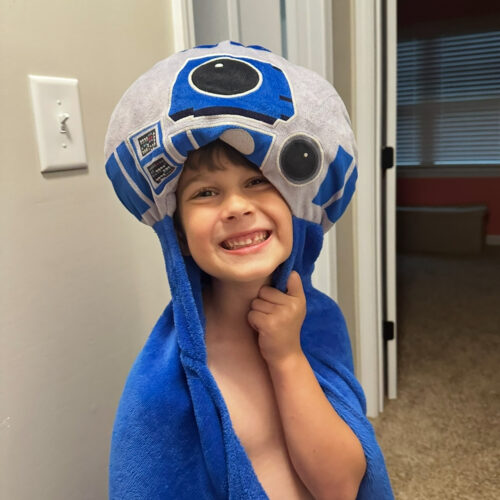
Shea himself sums it up best. One of his favorite quotes is, “I’m living my best life.” His days are filled with Marvel movies, Star Wars action figures, Nutella, late-night desserts, and adventures to Walmart where he heads straight to the toy aisle.
“He’s a miracle,” Tori says. “Every day with him feels like a gift. His heart is the purest heart I’ve ever met. He has this relationship with God and this connection with loved ones we’ve lost that is so real. He talks about them in heaven even though we don’t really talk like that at home. He just feels things on a deeper level.”
Tori is candid about the grief and resilience of raising a child with a life-limiting illness. “I never knew what it was like to grieve someone who is still alive,” she says. “That is a club no one wants to be a part of. But there is a community of parents who get it. My advice to newly diagnosed families is to give yourself grace, feel all the feelings, and enjoy the moments that matter.”
For the Shea, those moments often come in simple forms: snuggling with mom at night to watch Star Wars, climbing playground structures, eating ice cream, or riding a scooter down the street.
“Shea refuses to let Leigh Syndrome define him,” Tori says. “He is bigger than that, more than that. He is this miracle light shining bright in our home all the time.”
